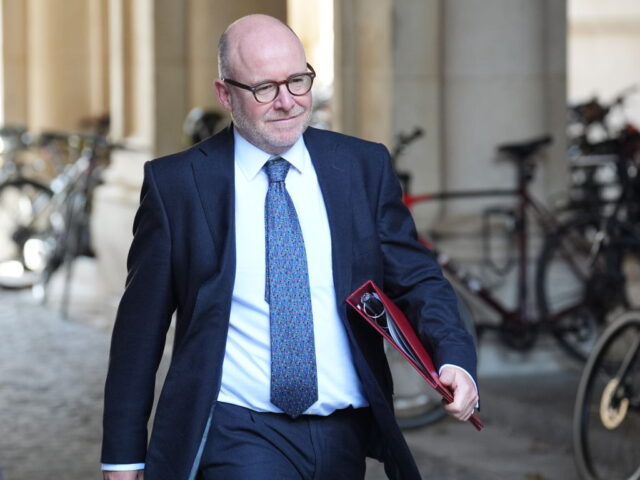The UK government’s chief legal advisor, the Attorney General, warns populism is one of the “most profound challenges of our age” that will require a “panoply” of measures to confront.
Top lawyer Richard Hermer, said to be a longstanding leftist who was made a ‘life peer’ last year to take up his role as Attorney General, was invited to ruminate on the “risks and the threat associated with populism” on Wednesday. Addressing the Justice Committee in Parliament, Lord Hermer responded to a leading question on the supposed “risk to democracy…. by the risk of populism but also widespread information”.
In the session, isolated by politics.co.uk, Hermer responded that “the question raised is one of the most profound challenges of our age” and that a “full panoply of measures that governments here and allies across the world are going to need to be thinking about” would be required.
The lawyer has previously laid out his understanding of populism and the threat he perceives as being “divisive and disruptive”, which opposes “a conspiracy of ‘elites’”. These elites are “the essence of liberal democracy,” he said, asserting that populists work to dismantle political consensus that underpins institutions and “diminish their legitimacy or, at worst, actively remove them from the scene altogether”.
Those elites he seeks to defend from sniping by ‘populist’ politics, of course, include lawyers like himself, as well as journalists, NGOs, and “an impartial and objective civil service”.
One of the defences against these attacks, Hermer said on Wednesday, is the government explaining why the rule of law — which he believes can’t survive populism — matters to the public and in language “that we all understand”.
Yet, as Hermer previously expressed in 2024, when he says “rule of law,” he is appealing to a special rather than common interpretation of it. The threat to this conception is essentially because some populists oppose internationalism.
He previously said: “International law is the ‘Rule of Law’ writ large, and that States must comply with their international obligations… To shore up the rule of law against the forces of populism, we must also emphasise its importance as an idea that unites, rather than divides us. The work to rebuild a political consensus around these values will not be easy. It must be proactive, cross-party and internationalist.”
The comments strike at the heart of major recent debates in the United Kingdom over mass migration and border control, for instance, where a slavish devotion to ‘international law’ left the country unable to reject what has now been rebranded as irregular migration at its southern coast.
The legacy political parties, like Britain’s ruling Labour, face an assault from so-called populists from both sides. On the one hand, Labour faces an internal threat from left-wing populists, and the now-Prime Minister Sir Keir Starmer has been purging his party of the Corbynite left for years, and externally from rising political forces like Nigel Farage’s Reform UK, which is now taking votes from Labour.
Therefore, the Labour government’s anxiety about populism may be understandable, but the language of “measures” to shut down rival political thought may be interpreted as concerningly allied with moves in Germany, for instance, to potentially exclude populists from the political system by outlawing them. Proponents of such a move have claimed that banning the second-highest polling political party in the country is essential to protect democracy.

COMMENTS
Please let us know if you're having issues with commenting.